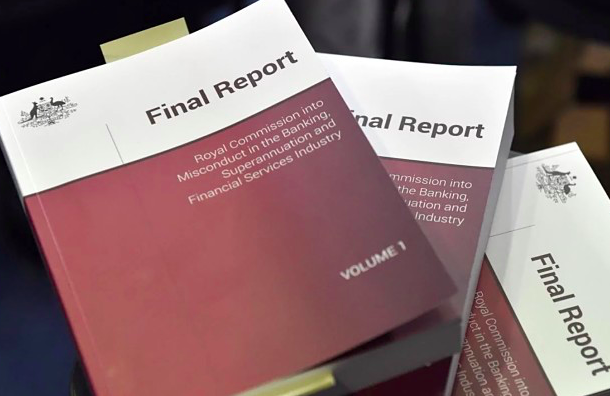While the findings and recommendations of the Banking Royal Commission and the response from the government may be considered tame, they provide welcome relief for small business owners in that they don’t provide a catalyst for a further tightening of credit and lending practices – with pain already being felt by small to medium businesses in gaining access to credit.
The two key messages are that (a) There is a clear need for regulators to pick up their game and enforce the existing laws AND (b) Banks must change their culture to ensure that the valid needs of their customers are put ahead of shareholders.
The report is surprising in its lack of anything ground breaking for small business when it comes to recommendations. Perhaps that reflects what COSBOA has said all along that the banking system in Australia was not broken. What the Royal Commission did highlight was the arrogance and elitism of the biggest institutions in the banking and superannuation systems which caused severe and unnecessary pain on a small but still significant number of innocent people.
Those businesses that were forced into bankruptcy and those families that suffered have been victims of poor regulation as much as from a complete lack of concern from the most senior management of wealthy institutions. Disturbingly however the collection of fees for ‘non-service’ or from deceased people which amounted to over $750m can’t be discounted as a series of mistakes but more as a systemic failure from management that (subconsciously?) turned a blind eye to a good source of income.”
– That the NCCP Act should not be amended to extend its operations to lending to small business;
– a national scheme of farm debt mediation should be enacted.
There are many other recommendations that should have good outcomes for small business owners when it comes to the Banking Code and enforceable code provisions and we acknowledge the government’s swift response and support of the recommendations. We also acknowledge the ALP’s support for the report. We of course need to continue to study the detail for any unintended consequences including the continued difficulty for small businesses to access finance due to the reaction, perhaps over reaction, of bank management.
The biggest disappointment however was the total lack of attention on the very poor administrative practices of superannuation funds when it comes to their dealings with small businesses who collect nearly all their money. Perhaps the Royal Commission left that issue to the Productivity Commission but it still is a missing component of any proper review.
We hope that the banks in particular have learned that they must treat people, including small business people, with respect and not let greed, poorly framed KPIs or a general lack of care of the impact on people’s private lives prevail. They also need to consider the impact on people’s health by decisions made by computers or by bank staff who are remote from the community and therefore no longer connected to reality.
We are sure that without quality regulation of the highest order, banks will quickly go back to poor practices. To that end we support the recommendations that will strengthen ASIC and APRA. We hope they use that strength wisely – judiciously where needed and with force when required.









